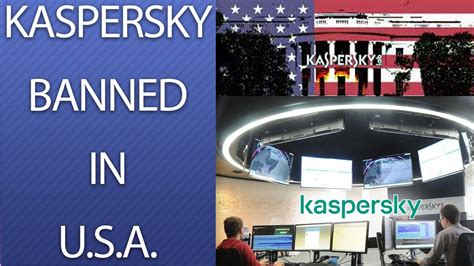The recent decision by the U.S. government to ban Kaspersky software has ignited intense debates around cybersecurity, national security, and even free speech. The heart of the issue lies in whether a software company based in Russia can be trusted on American soil given the current geopolitical tensions. This decision brings to the fore numerous underlying issues, from the implications of sanctioning software to the credibility and independence of tech companies under state governance.
One of the main concerns raised by critics is whether the ban on Kaspersky is indeed an attack on free speech or merely a necessary act of national security. With comments like “I feel this is somehow an attack on free speech but I can’t articulate how,” there’s a palpable unease about whether such bans limit the free flow of ideas and innovations. Conversely, others argue that a software company’s capability to operate independently from its government’s influence is highly questionable, especially under an authoritarian regime. The U.S. and its allies have long held suspicions regarding the Kremlin’s influence over Russian tech firms, particularly in light of accusations that Kaspersky had ties to Russian intelligence, as highlighted in related incidents like the NSA leak.
Additionally, the historical context provided by commentators drawing parallels with PGP (Pretty Good Privacy) export restrictions emphasizes the complexity of balancing national security and technological freedoms. Historically, cryptographic tools faced significant export controls due to concerns over their potential misuse. Similarly, modern antivirus software, especially one capable of deep system access like Kaspersky, is under scrutiny for its potential dual-use as both a protective tool and a conduit for espionage. This dichotomy is not new and recurs in various forms across technological and geopolitical landscapes.
The debate also brings to light the inherent risks in allowing any foreign software to have unrestricted access to critical systems. The argument that “The US is currently indirectly at war with Russia… I don’t understand why you think it makes sense to let someone you are basically at war with operate on your computers” underscores the perceived risks. In a world where cyber warfare is a growing concern, the integrity and trustworthiness of cybersecurity tools become critical. Skeptics point out that any sophisticated software designed to protect systems could equally serve as a vector for attacks if manipulated by hostile actors.
Furthermore, the revelations around NSA’s operations and the inadvertent leaks of their tools, like the EternalBlue exploit, show that cybersecurity is not a one-sided issue. The same concerns validly apply to other state-controlled or influenced software companies, highlighting the inherently global and interconnected nature of cybersecurity. The discourse reflects on whether actions like these are defensive measures or part of larger geopolitical strategies, wherein every nation-state seeks to protect and control its technological sovereignty while navigating the thin line between security and overreach.
In conclusion, the U.S. ban on Kaspersky software is more than just a straightforward policy decision—it embodies the complexities of modern cybersecurity, national security concerns, and the ethical implications of tech governance. This editorial underscores the need for nuanced approaches and international collaboration to truly understand and address the intricate web of factors at play. The future of tech policy should ideally strive to balance these diverse aspects to promote a more secure yet open digital world.


Leave a Reply